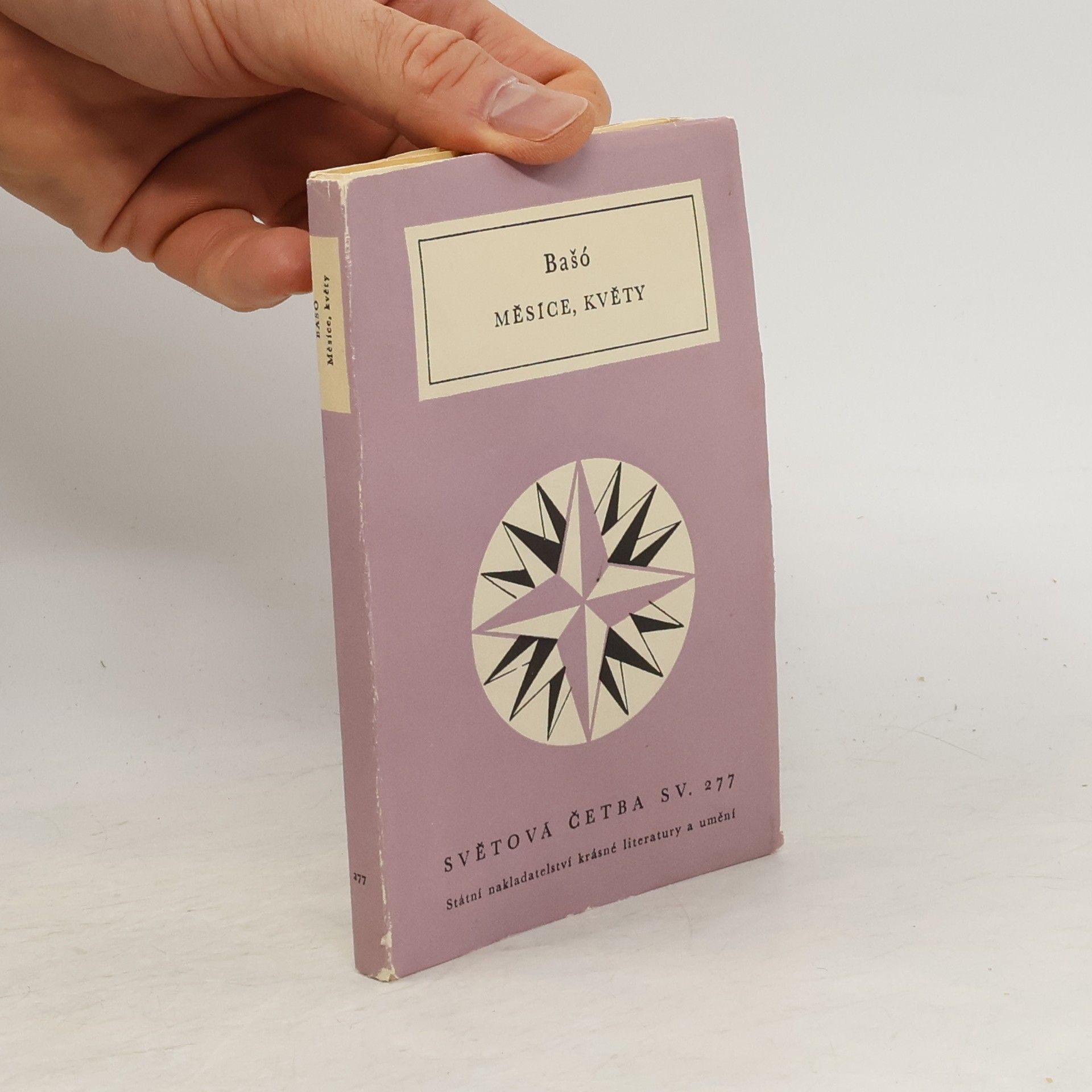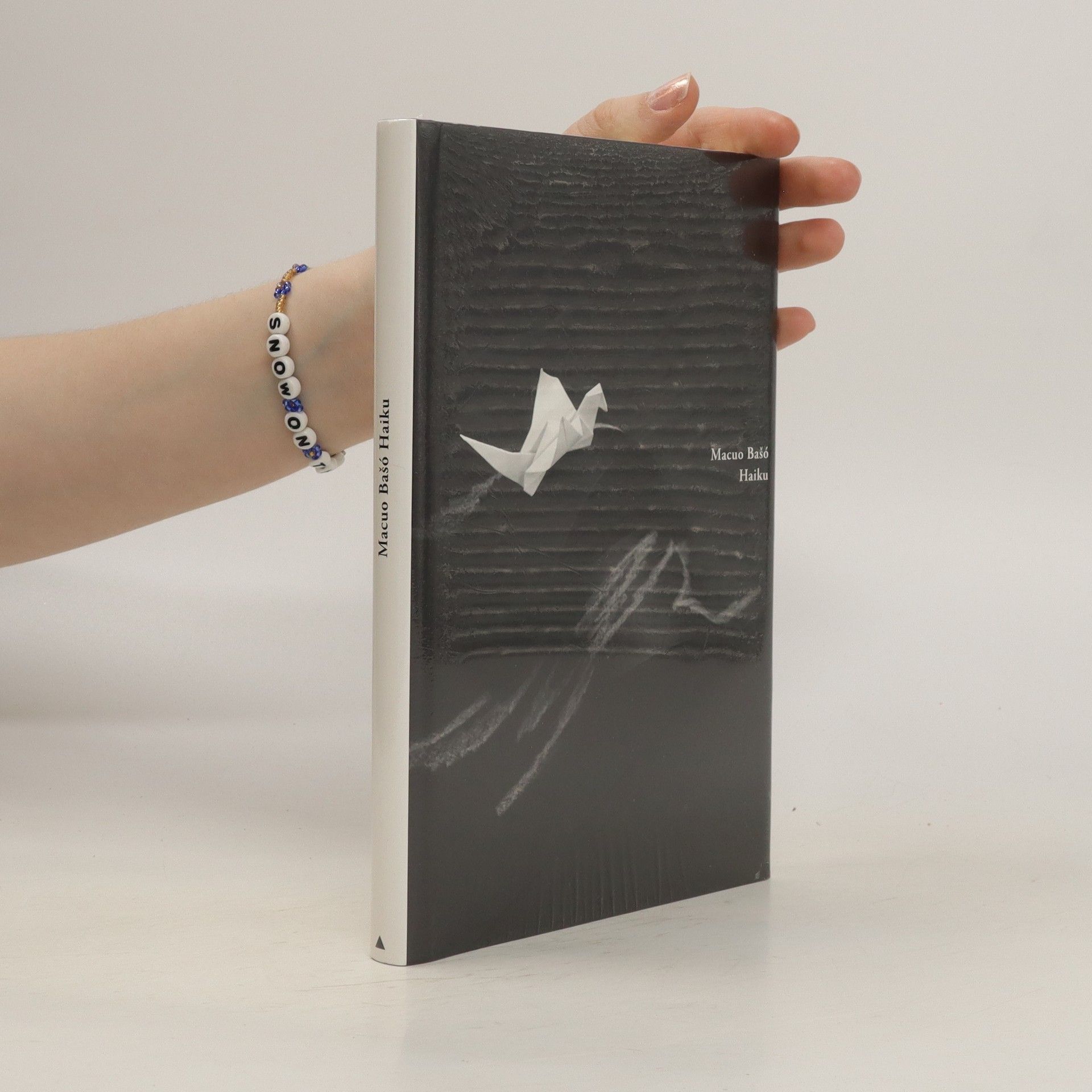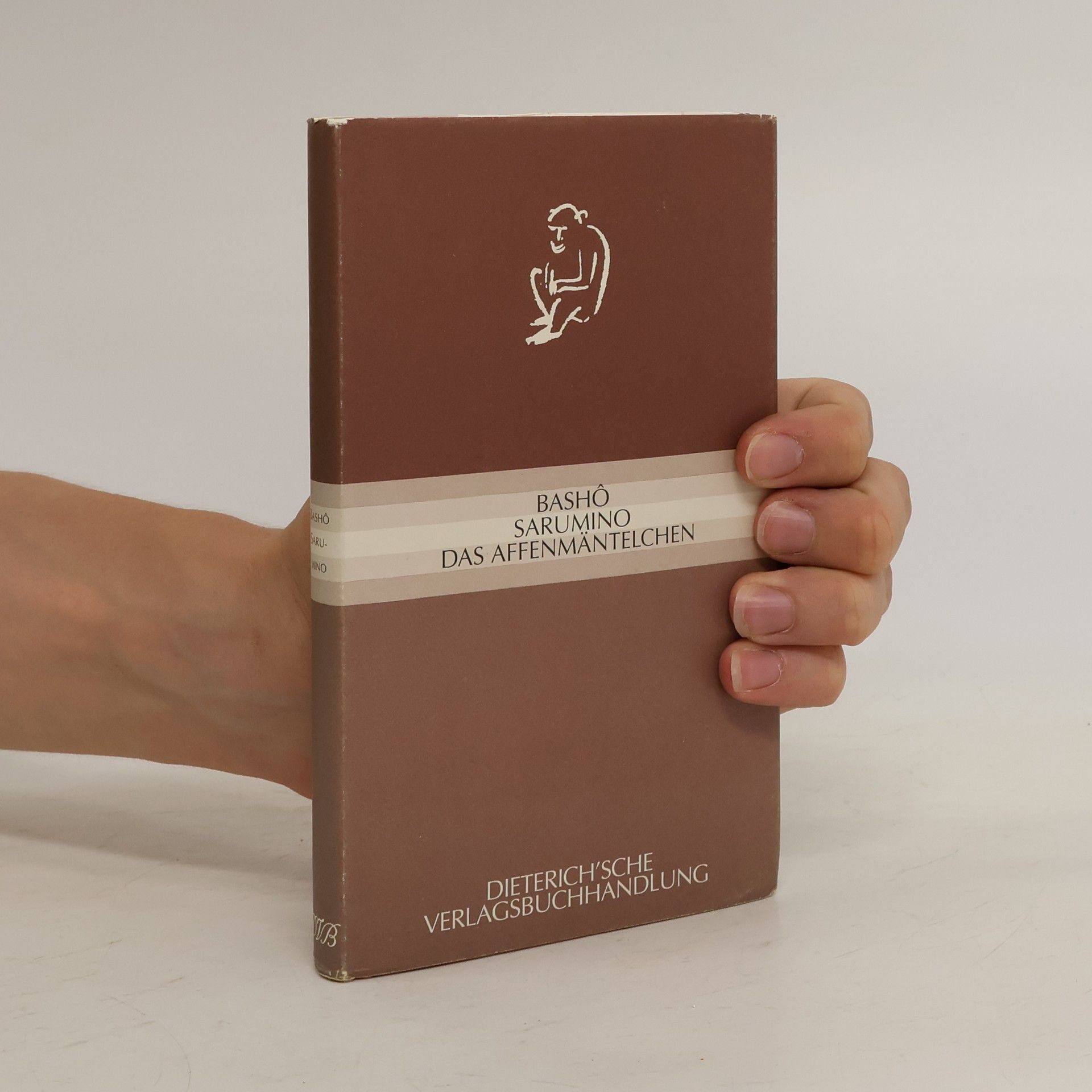Bash (1644-1694), voyageur infatigable, pote parmi les plus clbres du Japon, est considr comme le pre du haku et l'un de ses plus grands matres. Imprgn de sa pratique mditative zen, il lui donne sa structure et surtout son esprit : un tercet trs court qui saisit l'essence de l'instant prsent. Ce carnet de voyage, qui associe prose allusive et hakus d'une saisissante vitalit, marque un tournant dans la vie et l'oeuvre du pote. Il n'achvera de le rdiger que quelques mois avant sa mort. Son priple de cinq mois dans le Nord du Japon, de la fin du printemps aux profondeurs de l'automne, invite Bash clbrer la lgret et la beaut infinie de l'instant, les richesses de l'homme et du monde, et mditer sur l'impermanence de toute chose. Les superbes haga de Manda nous accompagnent dans ce voyage au coeur du Japon ternel et de l'intime aventure humaine.
Bashō Matsuo Livres
Matsuo Bashō fut le poète le plus célèbre de la période Edo au Japon. Réputé de son vivant pour ses œuvres collaboratives de haikai no renga, il est aujourd'hui reconnu comme un maître de l'haïku concis et clair. Sa poésie incarne l'esprit de son époque, offrant des observations profondes avec une élégante brièveté.
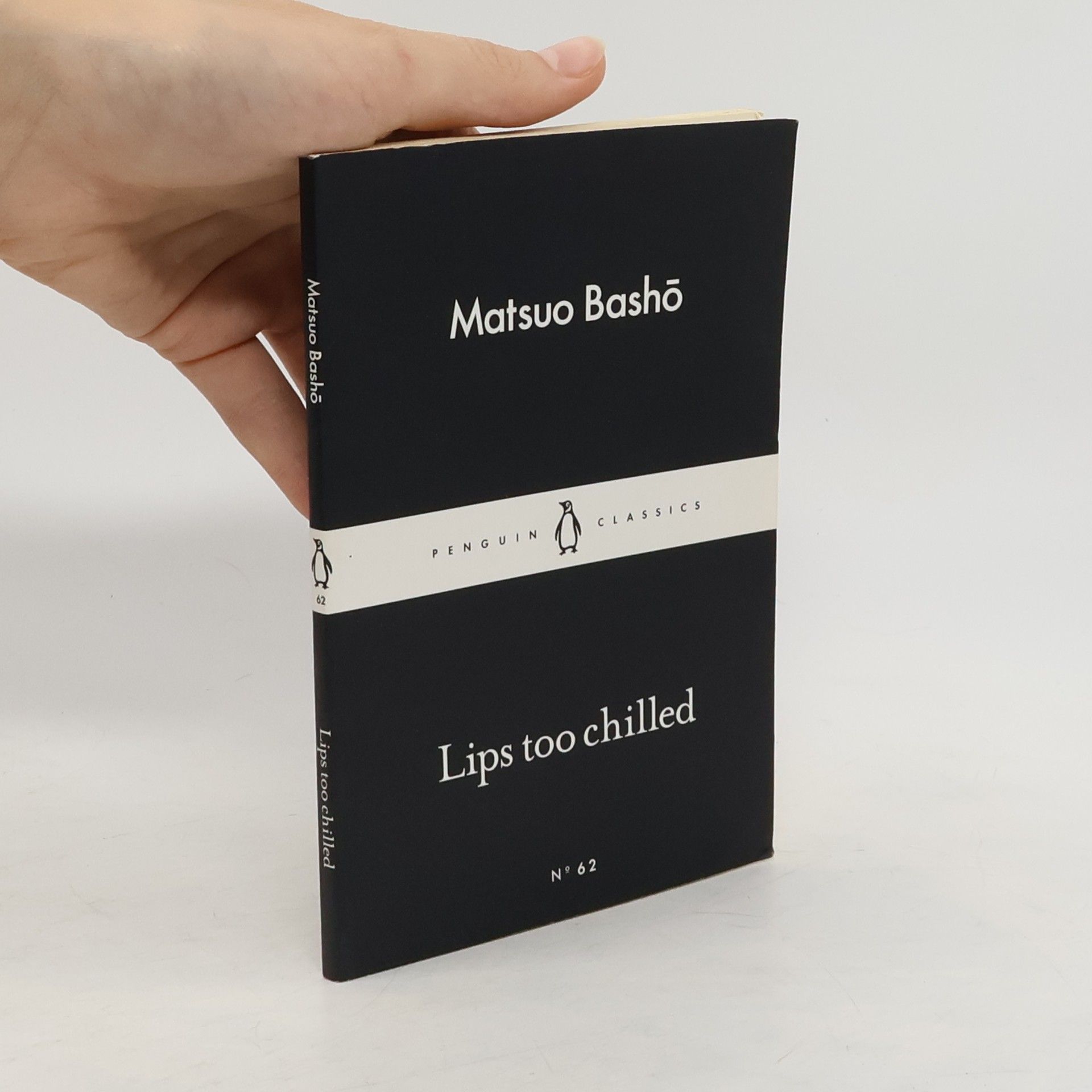
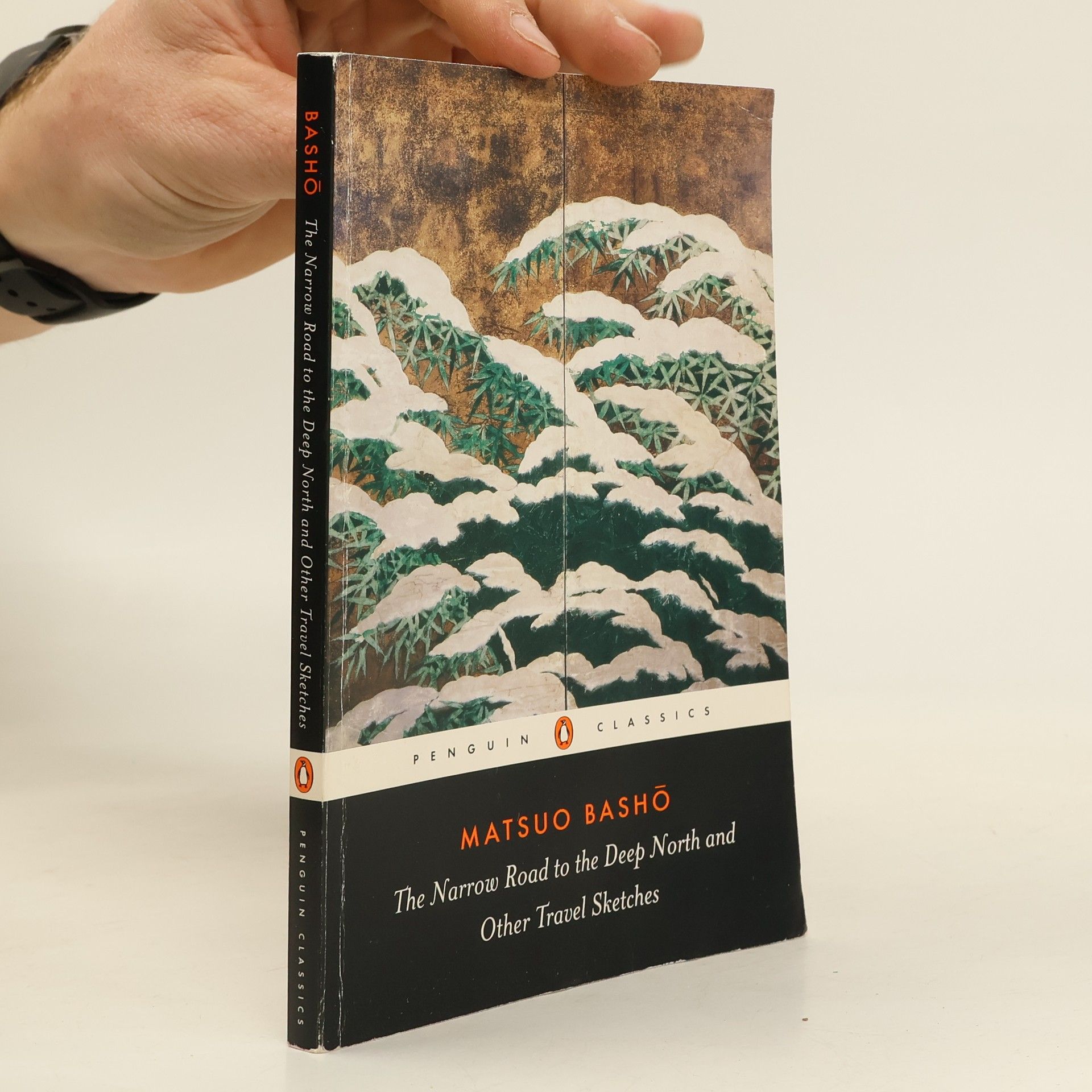




Travel Writings
- 304pages
- 11 heures de lecture
"The literary significance of these six texts is enormous, and a single, affordable volume containing all of them, in clear and accessible translations, with thorough annotations, [will] be a great boon to teachers of Japanese literature. The strengths of this translation are clear. . . . The annotations are extremely valuable: they show a solid grasp of Bashō's life, work, and times, and provide rich and detailed background, with plentiful information about allusions to Chinese and Japanese texts and connections with other works by Bashō. I don't think I have encountered an English translation of Bashō, or indeed of any Japanese poet, with such comprehensive annotation. . . . The thoroughness with which [these translations are] annotated will make this book a significant scholarly resource; it will also help general readers appreciate the density and delicacy of Bashō's writing. In short, I think this translation of Bashō's travel diaries will be an important and welcome addition to the English-language literature on one of the most important poets of the Japanese tradition." --David Lurie, Columbia University
Matsuo Bashō (1644-1694) is a towering figure in Japanese literature and the master of haiku. This collection presents 980 of his poems in English, translated by Andrew Fitzsimons, who adheres strictly to the original syllabic count. The book also includes translations of Bashō's headnotes to poems often overlooked by previous translators. Fitzsimons's rendering showcases Bashō not only as a philosopher of nature and a proponent of refined Japanese sensibility but also as a poet exploring themes of queer love, eroticism, urban and rural life, and the complexities of solitude and companionship. His work reflects the diverse social experiences of Edo Japan, capturing interactions with friends and followers across social strata, including the elite, the marginalized, and the less fortunate. This collection reveals how Bashō's poetry resonates with contemporary concerns while also portraying a Japan transitioning from the Middle Ages. With an insightful introduction and helpful notes, Fitzsimons's elegant translation invites both dedicated scholars and newcomers to appreciate the full glory of Bashō's work.
Narrow Road to the Interior
- 272pages
- 10 heures de lecture
A masterful translation of one of the most-loved classics of Japanese literature—part travelogue, part haiku collection, part account of spiritual awakening Bashō (1644–1694)—a great luminary of Asian literature who elevated the haiku to an art form of utter simplicity and intense spiritual beauty—is renowned in the West as the author of Narrow Road to the Interior, a travel diary of linked prose and haiku recounting his journey through the far northern provinces of Japan. This edition, part of the Shambhala Pocket Library series, features a masterful translation of this celebrated work. It also includes an insightful introduction by translator Sam Hamill detailing Bashō’s life and the art of haiku, three other important works by Bashō—Travelogue of Weather-Beaten Bones, The Knapsack Notebook, and Sarashina Travelogue—and two hundred and fifty of his finest haiku, making this the most complete single-volume collection of Bashō’s writings. The Shambhala Pocket Library is a collection of short, portable teachings from notable figures across religious traditions and classic texts. The covers in this series are rendered by Colorado artist Robert Spellman. The books in this collection distill the wisdom and heart of the work Shambhala Publications has published over 50 years into a compact format that is collectible, reader-friendly, and applicable to everyday life.
In his beautifully crafted haiku, Basho captures the natural world with simplicity and deep feeling. As an ardent student of Zen Buddhism, he embarked on travels aimed at shedding material distractions and seeking spiritual enlightenment. His writings reflect the changing seasons, the scent of rain, the brightness of the moon, and the beauty of waterfalls, revealing the mysteries of the universe. This seventeenth-century travel writing chronicles Basho's challenging journeys through Japan while expressing his vision of eternity in the transient world around him. Nobuyuki Yuasa’s lucid translation preserves the lyrical qualities of Basho's poetry and prose, using contemporary language and rhythms. The introduction explores the haibun style, where poetry and prose coexist, and the edition includes maps and notes for context. For over seventy years, Penguin has been a leading publisher of classic literature in the English-speaking world, offering a diverse collection of more than 1,700 titles. Penguin Classics is trusted for its authoritative texts, enhanced by introductions and notes from distinguished scholars and contemporary authors, along with modern translations by award-winning translators.
Lips too chilled
- 64pages
- 3 heures de lecture
Japan's celebrated Buddhist poet balances the smallness of humanity with nature's epic drama in these magical seventeenth-century haikus.
Pár much a já : malý výběr z japonských haiku
- 120pages
- 5 heures de lecture
Čtyři slavní japonští básníci 17.-19. století: „zenový filosof a estét“ Bašó, „boží člověk“ Issa, „malíř a intelektuál“ Buson a „piják a poutník“ Santóka a výběr z jejich haiku v překladu Antonína Límana. Originální kaligrafie Petr Geisler. Dotisk vychází v druhém vydání k nedožitým 90. narozeninám Antonína Límana. „Vrcholná haiku dosahují hranice nemožného: jsou záznamem mystické zkušenosti.“
Výbor z básní haiku největšího japonského básníka žijícího v 17. století.
Haiku
- 128pages
- 5 heures de lecture
Macuo Bašó (1644 – 1694) sa pokladá za najvýznamnejšieho japonského básnika. Po smrti blízkeho priateľa zo zámožnej rodiny sa vzdal relatívne zabezpečeného života a prijal osud potulného básnika, pustovníka a pútnika „visiaceho na tenkej niti poézie“. V tvorbe od tzv. radenej básne prešiel k všeobecne oceňovanému písaniu samostatných trojverší, ktoré neskôr nadobudli pomenovanie haiku. Má hlavnú zásluhu na etablovaní a premene tohto lyrického útvaru. Prvý slovenský prekladový výber z jeho haiku sa usiluje o ich základné viacrozmerné predstavenie, pričom prináša aj poznámky k básňam, kalendárium a obsiahly interpretačný doslov. Bašó sa prezentuje ako lyrik nesmiernej empatie k človeku a prírode, zhodnocovania nevšímaného a obohacujúcej východnej duchovnosti. Básne preložil Ján Zambor v jazykovej a odbornej spolupráci s Františkom Paulovičom.
Sarumino
- 224pages
- 8 heures de lecture

